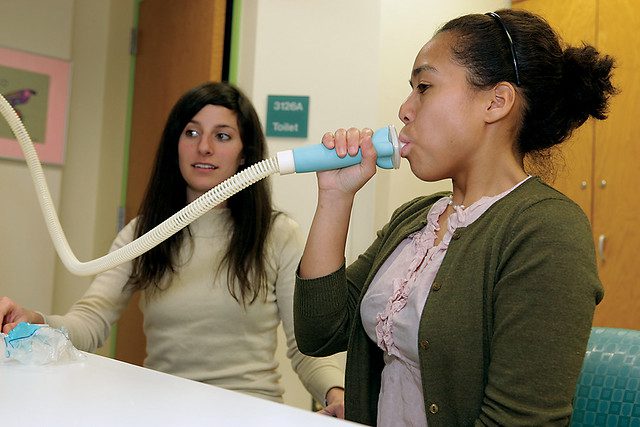


CREDO: SNAP is one of the most effective and efficient ways to reduce poverty and boost the economy from the bottom. Currently, states have the leeway to allow people to access SNAP benefits (i.e., food stamps) while still building up some small savings for the future. But President Trump’s Department of Agriculture has a new proposal that would eliminate that flexibility and rip SNAP benefits away from more than 3 million people who rely on them for food security. In addition to robbing families and single adults of food security, changing who is eligible for SNAP benefits would also take school lunches off the trays of more than 500,000 children. This is unacceptable.
>>>Tell the Department of Agriculture: Don’t cut SNAP benefits.
Humane Society of the United States: Shark populations are in crisis due to the global trade in shark fins. Every year, fins from as many as 73 million sharks are traded throughout the world to satisfy the demand for shark fin soup. To provide these fins, fishermen often engage in shark finning—a horrific practice in which they cut off sharks’ fins, then toss the mutilated animals back into the ocean where they drown, bleed to death, or are eaten alive by other fish. The shark fin trade has also played a major role in the steep decline of shark species worldwide, some populations of which have dropped by as much as 90 percent in recent decades. Although shark finning is prohibited in American waters, the U.S. still has a bustling market for shark fins. Consumers in most states can buy them, and the U.S. is one of the world’s top importers of shark fins as well as a transit point for international shark fin shipments. That means the U.S. contributes to shark finning and dwindling shark populations elsewhere in the world. The Shark Fin Sales Elimination Act, H.R. 737 and S. 877, will help reduce this trade by prohibiting the import, export, possession, trade and distribution of shark fins and products containing shark fins—saving these animals from a devastating fate.
>>>Urge your representatives and senators to support H.R. 737 and S. 877 to stop the trade of shark fins in the United States.
Care2: Foie gras, which is French for “fatty liver,” involves force-feeding restrained ducks, or geese, by shoving metal pipes down their throats multiple times a day, called gavage, and pumping them full of grain, or corn and fat, which leads to acute hepatic lipidosis, or fatty liver disease. As a result, ducks suffer from malfunctioning livers that are ten times their normal size, among other health problems that leave many unable to even breathe normally, or just stand and move around. Fortunately, the practice is considered so inhumane that it’s already been banned in a dozen countries, while several others have a ban on force-feeding. Now, New York City may be next to act. Following a major win in California with the U.S. Supreme Court upholding the state’s ban, Councilwoman Carlina Rivera has just introduced a bill that would ban the sale of foie gras in New York City over concerns about the cruelty involved in its production. If it’s passed, anyone found breaking the law will be facing fines of up to $1,000, up to a year in jail, or both.
>>>Urge the NYC Council to ban foie gras.
Cause for concern…

- One-third of all new childhood asthma cases in Europe are due to air pollution (Alexandra Jacobo, NationofChange)
- ‘The next Flint’: America’s problem with lead in its water (Molly Enking, Grist)
- Peat fires in the Arctic are the latest symptom of climate change (The Economist)
- Sunscreens release metals like aluminum, silica and phosphorous into seawater (American Chemical Society)
- Industrial fishing behind plummeting shark numbers (Zoological Society of London)
- Spanish ‘Fire Bull’ ritual sees bull beaten, burned before being killed (Aidan Wallace, Canoe)
Round of applause…

- For a sustainable climate and food system, regenerative agriculture is the key (Kristin Ohlson, Yes! Magazine)
- Julián Castro’s new animal rights plan takes on a favorite Donald Trump Jr. hobby (Suzanne Gamboa, NBC News)
- 12,000 activists march to end animal exploitation (Krista Kihlander, Sentient Media)
- Paros in Greece wants to become the world’s first island free of plastic waste (Jessica Bateman, BBC News)
- A grassroots project is using concrete to replicate coral reefs in the Caribbean, offering a lifeline to marine species (Steph Andrews, The Ecologist)
- The world’s largest pork producer is launching plant-based meat (Jill Ettinger, LIVEKINDLY)
- New Yorkers with high blood pressure and low access to healthy food can get prescriptions for free fruits and vegetables (Amanda Schupak, HuffPost)
- Germany considers 19% tax on meat, funds would be used to improve animal welfare (Anna Starostinetskaya)
Correction…
The EFL article “10 Ways Andrew Wheeler Has Decimated EPA Protections in Just One Year,” by Elliott Negin (Truthout, July 11, 2019), incorrectly stated that “the design improvements automakers have made so far to meet the [fuel efficiency] standards have already saved drivers more than $86 trillion at the pump since 2012.” The correct figure is $86 billion. Sorry. It has been corrected. Thanks to EFL reader RexBC from Dallas for letting us know.
Parting thought…
“Almost every single major environmental problem could be solved by a global shift toward plant-based eating.” —James Cameron, foreword to “Food Is the Solution: What to Eat to Save the World,” by Matthew Prescott (Flatiron Books, 2018)